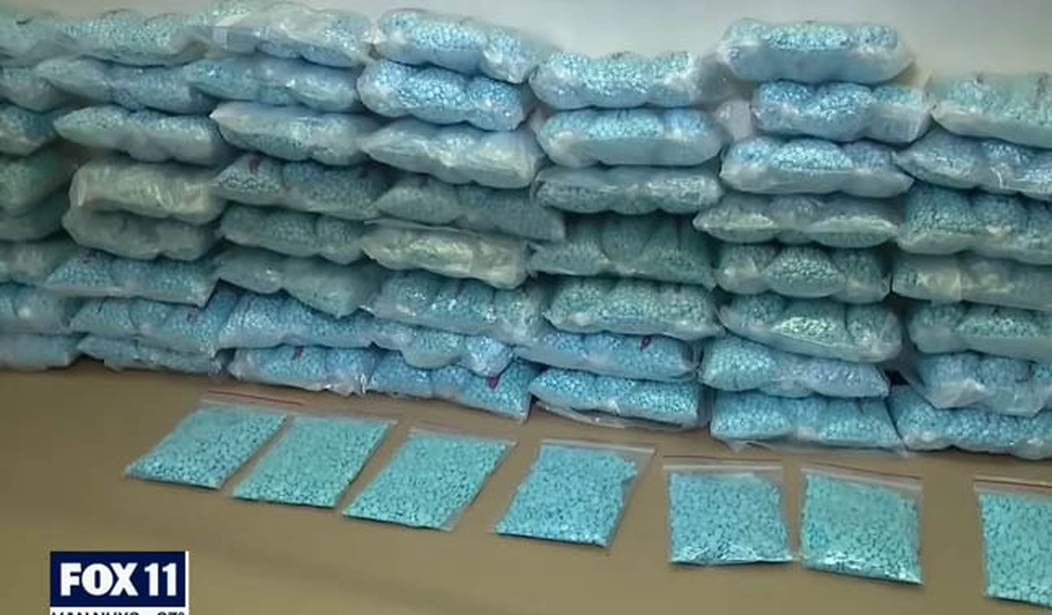The body count associated with fentanyl is pretty astounding. Today the LA Times published a story highlighting the death toll in LA between 2016 and 2021:
Deaths tied to illicit fentanyl have skyrocketed in Los Angeles County, with more than 13 times as many people losing their lives in 2021 than in 2016, according to a report released Tuesday…
In L.A. County, the number of deaths linked to fentanyl rose from 109 in 2016 to 1,504 in 2021, a 1,280% increase, the Department of Public Health found. Last year, fentanyl was involved in 55% of overdose deaths across the county. Among 12- to 17-year-olds who died of an overdose, the vast majority — 92% — tested positive for fentanyl…
“We’re talking a matter of minutes where someone can ingest a pill, and they can stop breathing. If someone doesn’t come across them and administer naloxone” — a medication that can reverse the effects of opioids — “they can very easily die before ever having a chance to make it to the hospital,” Tsai said.
Numbers are one thing but yesterday the AP published a story/photo essay that really gives a better sense of how grim these numbers are. Of course in LA the abuse of fentanyl is tightly tied to homelessness.
In a filthy alley behind a Los Angeles doughnut shop, Ryan Smith convulsed in the grips of a fentanyl high — lurching from moments of slumber to bouts of violent shivering on a warm summer day.
When Brandice Josey, another homeless addict, bent down and blew a puff of fentanyl smoke his way in an act of charity, Smith sat up and slowly opened his lip to inhale the vapor as if it was the cure to his problems.
Smith, wearing a grimy yellow T-shirt that said “Good Vibes Only,” reclined on his backpack and dozed the rest of the afternoon on the asphalt, unperturbed by the stench of rotting food and human waste that permeated the air.
The AP story is full of images of people who’ve passed out on their feet, either leaning precariously on something or simply lying on a fence. And of course the combination of homelessness and daily drug abuse results in a lot of people with serious mental problems (and some who started out with mental problems and fell into drug abuse). And of course the people using this drug daily aren’t working 9-5 to feed their habit as the story notes in passing.
Jennifer Catano, 27, has the names of two children tattooed on her wrists, but she hasn’t seen them for several years. They live with her mother…
Catano wandered around a subway station near MacArthur Park desperate to sell a bottle of Downy fabric softener and a Coleman camping chair she stole from a nearby store…
Catano couldn’t sell the chair, but eventually she sold the fabric softener to a street vendor for $5.
That was enough for another hit of fentanyl and another bout of unconsciousness on the street. Her story is tragic but there are thousands of people just like her, stealing what they can every day to get high. Even in a city as big as Los Angeles the rampant theft has an impact.
Fentanyl overdoses are happening everywhere in the US. They killed about 71,000 people last year alone. But LA has apparently become a distribution hub for the entire nation:
Los Angeles County has become ground zero in the trafficking pipeline as the Sinaloa and Jalisco New Generation cartels have increased their distribution of the cheaply manufactured pills that look like prescription drugs…
Edddie Wong, acting Special Agent for Homeland Security in LA, said in the past three years, HSI has seen an 80% increase in the number of fentanyl seized in Los Angeles.
Wong said just last week, his office seized over 1 million fentanyl pills.
“Sadly, in this current fiscal year my office is on track to seize double the amount of fentanyl that we seized during the past four fiscal years combined,” Wong said.
Given the scope of the death involved plus the connection to the border crisis and to homelessness, it’s a wonder fentanyl doesn’t get more consistent attention. I’m not sure why it doesn’t. Has the more permissive approach to drug use collectively desensitized us? Maybe people just don’t believe there’s anything that can be done about it? Or maybe death tolls like 71,000 just don’t shock us after a pandemic where the death tolls were even higher. Whatever the case, the rapid growth of the problem is worrisome.
Here’s a local news report on fentanyl from last month.







Join the conversation as a VIP Member